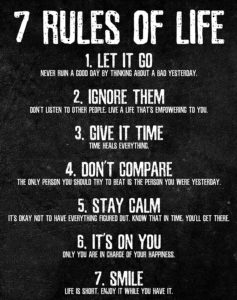
Behaviorism for Parents – The Basics (Lesson 1)
I often have to teach parents about basic principles of operant conditioning and such, so I finally just wrote it up. Thought I’d share it with you.
Thorndike’s Law: If you do something, and something good follows, you’re more likely to do that thing again. If you do something, and something bad follows, you’re less likely to do that thing again. (If this also sounds like we’re training a puppy… yes, very much yes.)
Important note: This is only for increasing or decreasing the occurrence of a behavior that already happens. We will talk about adding new behaviors (or more complex behaviors) later. Go ahead and get clients to identify a single behavior they like and one they don’t like for a single kid to use as examples for this teaching.
There are TWO WAYS for something good to follow a behavior. The first is if something pleasant is given (positive reinforcement, but you might just want to call this “reward”). So, if Jackson makes his bed in the morning, he might receive a dollar, or a sticker, or a gum drop, or extra screen time, or a curfew extension, or praise. Important note: rewards only work if they are valued by the recipient. It is a very common mistake to try to reward kids with things that we think they should care about but they really don’t.
The second way for something good to follow a behavior is for something unpleasant that already exists is taken away (negative reinforcement, but maybe you want to call it something like “reprieve.”) So, if Jackson makes his bed in the morning, he might get out of doing an unpleasant chore like washing the dishes. Same caveat – it has to matter to the kid.
Note that is has to be an overall pleasant experience, so if rewards are given grudgingly, or only after lots of nagging, etc., the overall takeaway won’t be pleasant.
SO: If Jackson likes desserts and hates folding laundry, and he makes his bed each day, and each day he gets ice cream after dinner and at the end of the week Mom hangs up his clothes instead of him, he’s much more likely to make his bed in the future.
These two strategies – reward and reprieve – are the foundation of behavior change. Rewarding behavior you want is much, much, much more effective than trying to punish behavior you don’t want. (More on this in a moment.)
There are TWO WAYS for something bad to follow a behavior. The first is if something unpleasant occurs (positive punishment, but you might just call it “punishment”). So, if Cinthia hits her younger sister, she gets spanked, or yelled at, or an additional chore. Important note: Punishments only work under very certain circumstances – they have to matter to the child, they have to be consistent across all settings, they have to be unemotionally delivered, and they have to be of moderate intensity. This is tremendously hard to do, especially with things like spankings. A “moderate intensity” spanking varies widely between kids and changes rapidly as they age. Also, the more often you spank, the more of a tolerance builds, and you will rapidly find yourself in a position where the hardest you are willing to spank them doesn’t matter to them anymore. And because they didn’t want to be spanked, and will resent your tyrannical exercise of control, they will begin to take much more pleasure from defying you than displeasure from being spanked and it simply won’t work anymore. Punishment (of all kinds, but certainly physical) also doesn’t get you anywhere in terms of teaching appropriate behavior. So, you don’t get better trained kids. Occasionally, you get cowed kids who seem to behave but are just waiting until they’re big enough to get away or hit back. You also teach them that aggression is the way to exercise control over other people they are bigger than. The much better choice is to choose an incompatible behavior (like listening quietly rather than shouting, telling a parent rather than hitting a sibling, etc.) and reward that behavior instead.
They second way for something bad to follow a behavior is for something pleasant to be taken away (negative reinforcement, or you may want to call it something like “payment”). If you feel you must have “negative consequences for misbehavior,” this is a much better option than punishment. So, if Cinthia hits her little sister, she has to “pay” in terms of losing allowance, an earlier curfew, losing her car or phone or screen time for a certain amount of time. There are still risks associated with this kind of use of your power – specifically that as your kids get older, they’ll just turn to friends to get the things they want – rides, borrowing phones, sneaking out, etc. – so that they aren’t dependent on you to give them the things they want.
Overall, the best solution is to create just a few rules for things that your kids are capable of doing that have good reasons behind them that your kids know, then rewarding those valuable behaviors with things your kids value as well.
Behaviorism for Parents Volume 2 and Volume 3 are now available!
Comment below: Where do your clients get stuck with understanding behavioral principles?


